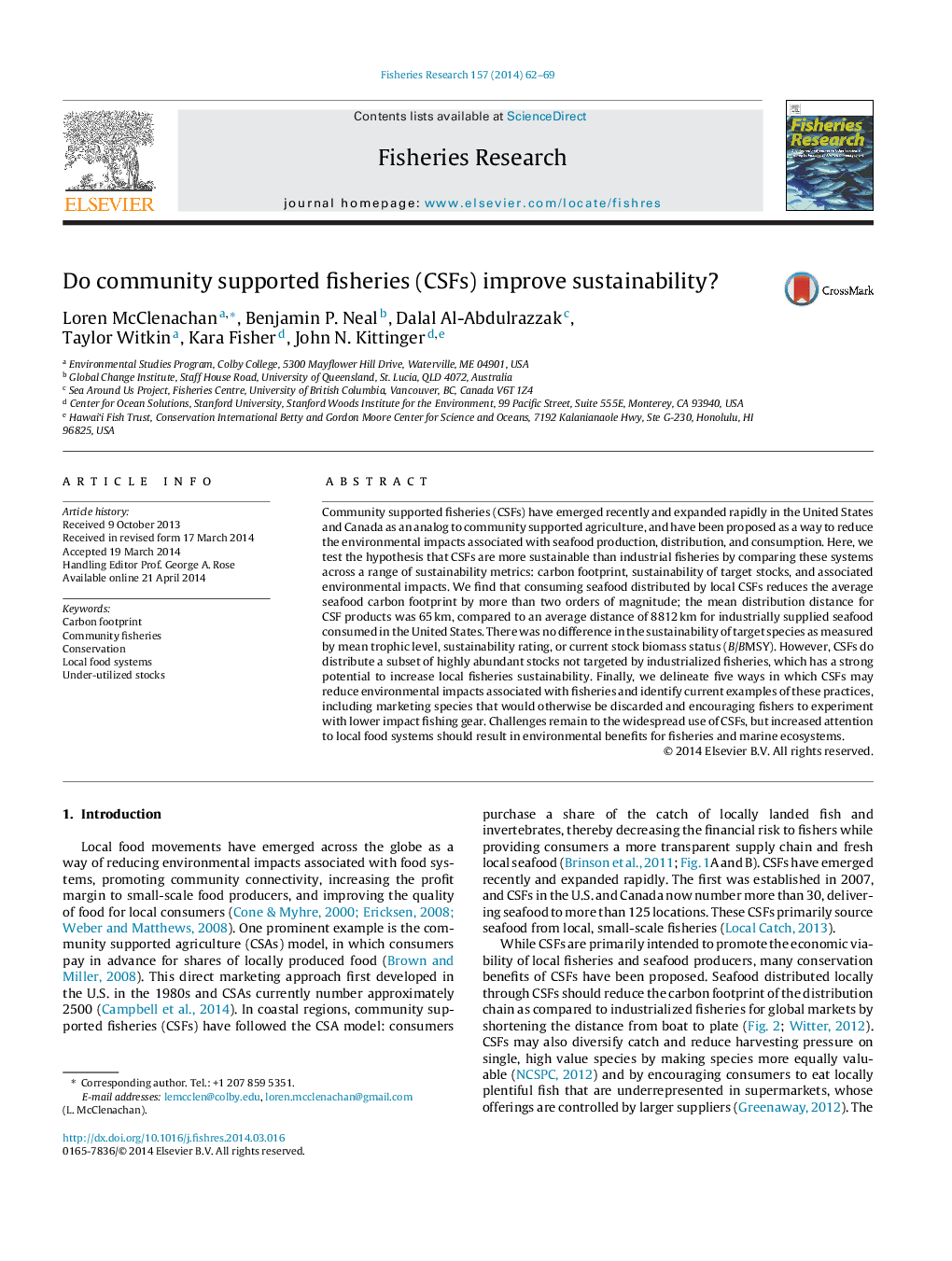| Article ID | Journal | Published Year | Pages | File Type |
|---|---|---|---|---|
| 4543041 | Fisheries Research | 2014 | 8 Pages |
•Community supported fisheries (CSFs) are an analog to local direct marketing efforts in agricultural systems.•CSFs reduce seafood's distribution carbon footprint by two orders of magnitude as compared to industrial seafood.•CSFs can target and distribute stocks that are in high local abundance.•We delineate five additional ways that CSFs reduce environmental impacts associated with fisheries.•CSFs may hold promise for locally-based marine conservation.
Community supported fisheries (CSFs) have emerged recently and expanded rapidly in the United States and Canada as an analog to community supported agriculture, and have been proposed as a way to reduce the environmental impacts associated with seafood production, distribution, and consumption. Here, we test the hypothesis that CSFs are more sustainable than industrial fisheries by comparing these systems across a range of sustainability metrics: carbon footprint, sustainability of target stocks, and associated environmental impacts. We find that consuming seafood distributed by local CSFs reduces the average seafood carbon footprint by more than two orders of magnitude; the mean distribution distance for CSF products was 65 km, compared to an average distance of 8812 km for industrially supplied seafood consumed in the United States. There was no difference in the sustainability of target species as measured by mean trophic level, sustainability rating, or current stock biomass status (B/BMSY). However, CSFs do distribute a subset of highly abundant stocks not targeted by industrialized fisheries, which has a strong potential to increase local fisheries sustainability. Finally, we delineate five ways in which CSFs may reduce environmental impacts associated with fisheries and identify current examples of these practices, including marketing species that would otherwise be discarded and encouraging fishers to experiment with lower impact fishing gear. Challenges remain to the widespread use of CSFs, but increased attention to local food systems should result in environmental benefits for fisheries and marine ecosystems.
